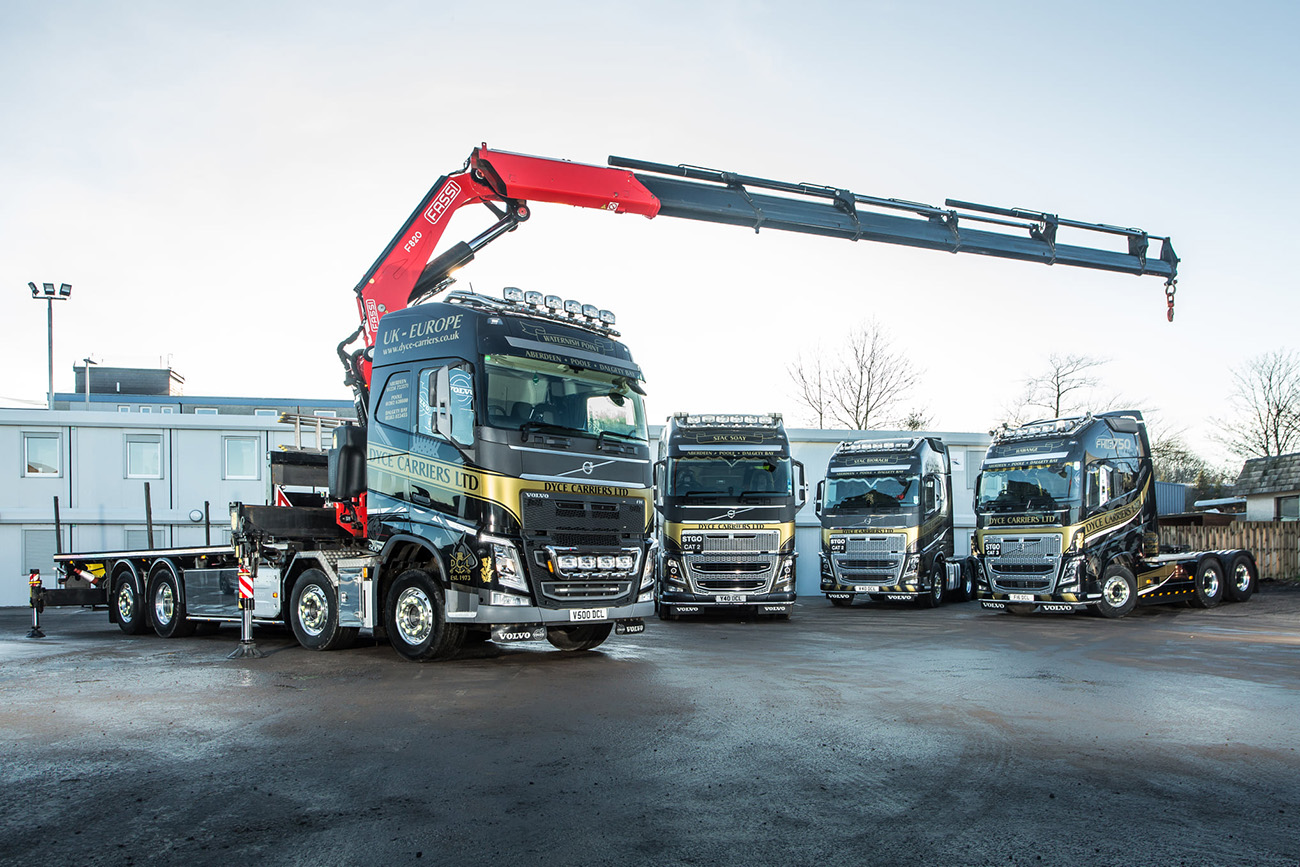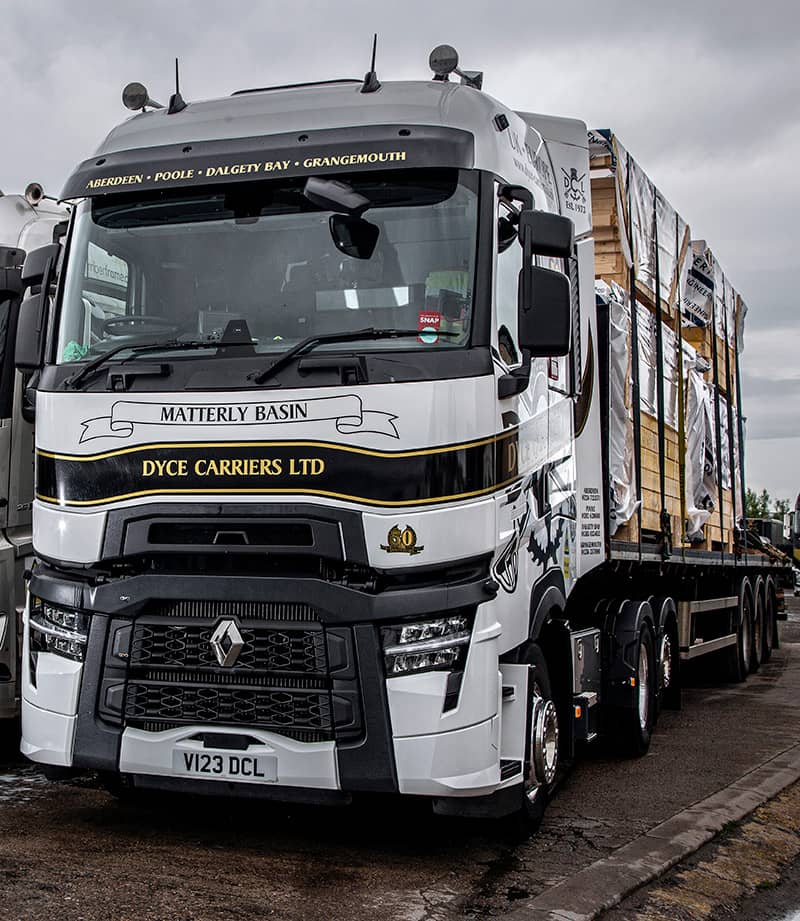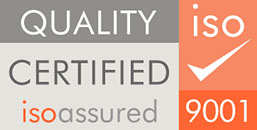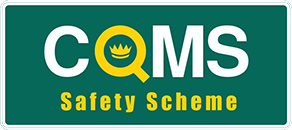Our Fleet
We have an extensive, varied fleet of vehicles and trailers

Our fleet helps to facilitate the wide range of services we offer. To build a fleet on this scale, it’s essential to have a fleet investment strategy as the capital investment is significant. You can read more about our fleet investment strategy below.

Special Vehicles
We are proud to boast a strong fleet of self-load hi-ab vehicles with the largest crane offering a 14 ton lift. This one stop shop, so to speak, of a combined crane and vehicle for lifting and transporting your goods will reduce your overall haulage costs substantially.
Our fleet includes category 2 special types vehicles to handle a multitude of abnormal loads, including but not limited to loads of up to a GVW (Gross Vehicle Weight) of 80 ton.
Trailers
We have a wide range of trailers within our fleet varying in specification and size. The majority of our trailers are flats and these are supplemented by curtain-siders, step-frames and low-loaders. Typically a well-maintained trailer will last a little over ten years. And it pays for us to have an effective maintenance programme to optimise trailer life.
Tractor Units
We have a range of tractor-units currently operating with an average vehicle age of under five years. These have been sourced from a range of manufacturers over time who include: DAF, Iveco, Mercedes, Renault, Scania and Volvo. Over the years, we have enjoyed relationships with every major manufacturer. You can find photographs of some of our current fleet and former fleet in our Gallery.
Maintenance & Support
Our in-house team are responsible for maintaining of our fleet. We rely on the respective manufacturers for specialist and detailed maintenance requirements. In Aberdeen and Poole, we operate our own garage and mechanics to provide front-line maintenance support. This year marks the completion of our new Aberdeen garage.
One key maintenance support contract is provided by Michelin because a good tyre management programme is essential for the operational support of our business. Bridgestone provides an excellent service that helps us maintain our fleet.
Our Fleet Investment Strategy
Background
We understand that many different people with different interests will visit our website. This will vary from customers, suppliers, even our own team and their families and friends, to people with a passion for the haulage industry and more. With this in mind, we decided to give our visitors the opportunity to look behind the curtain to gain some appreciation of what goes into operating a road haulage business. Our fleet investment strategy is a good place to start.
Cost Planning
Cost planning in an industry where costs such as fuel and wages can be in excess of half the running costs, is essential. Our fleet investment strategy reflects the need to plan capital expenditure wisely. As the cost of fuel continues to impact on financial performance, the advent of diesel electric and naturally powered gas units may become a key change in haulage economics. We look forward to trialling such units. Although investment costs at the outset may be greater, the lower operating costs over time are worthy of consideration.
In addition to operational and financial factors such as reliability, serviceability, manufacturer support and operating costs, we listen to the views of our various stakeholders very seriously. What drivers, safety advisers, customers, environmental bodies, and accreditation agencies have to say must be given consideration when cost planning.
To Lease or Not
Years ago leasing was something of a rarity. However, in recent years the support of the manufacturer in maintaining modern sophisticated technology in the vehicles has become absolutely crucial and this, combined with greater availability of lease options, has meant that more and more hauliers are leasing. Trends can fluctuate and given that we replace between 10 and 15 units a year, the relative value of leasing versus outright purchase is a variable that requires regular consideration. Like any investment there is no certainty that one strategy will out perform the other, and therefore at Dyce Carriers we mix both.

Maintenance Considerations and Manufacturer Support
With the best will in the world, it is almost impossible for any haulier to provide a level of maintenance support that comes close to the manufacturer’s capability. The training and diagnostics necessary to maintain modern equipment are significant. The risk and cost of equipment failure is a fundamental consideration when investing in our fleet. Where tractor units cost upwards of £100,000, it makes sense to apply a balanced risk approach to hedge against various equipment failures, maintenance quality, maintenance costs, and future value fluctuations. Therefore, the quality of maintenance package and manufacturer support plays a huge role when selecting a set of vehicles. Since we typically change out the fleet in sets of five vehicles at a time, the life cycle support costs are factored into the equation, which amounts to a significant level of investment.





